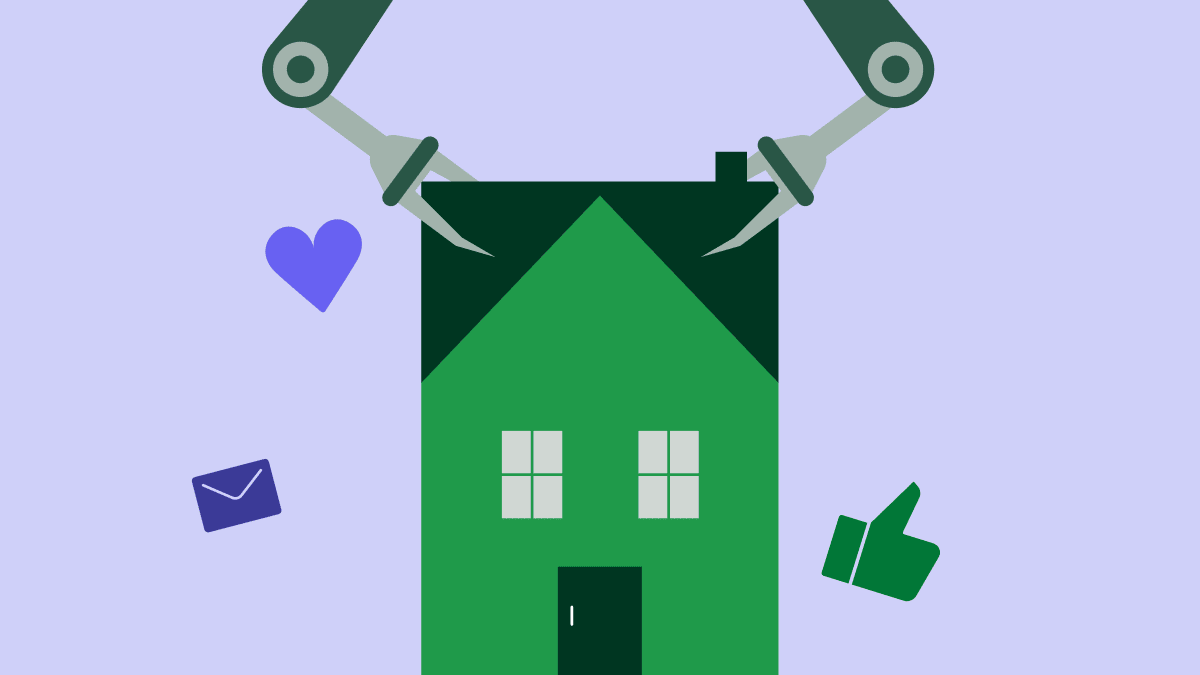Door-to-door business is not just synonymous with vacuum cleaner sellers. It encompasses much more, as evidenced by new D2D products such as smart home devices.
In this article, we explore the industries that can benefit from door-to-door sales tips and provide guidance on how this form of direct selling can achieve success.
What is D2D?
D2D, short for door-to-door sales, is a direct selling method where salespeople go door-to-door to present products or services to potential customers. This type of sales has a long history and is used by companies in various industries to establish personal contact and maximize sales opportunities.
When do door-to-door sales make sense?
Door-to-door sales might seem old-fashioned, but it can remain an effective strategy for specific products. If your product is complex or requires detailed explanations, in-person conversations with a door-to-door salesperson can have a more significant impact than other sales and marketing methods.
Your sales team can provide essential information, answer questions on the spot and personalize their explanations for each customer.
Similarly, customizable products often benefit from door-to-door sales. An on-site visit lets your sales staff assess the situation and tailor a solution directly to the customer’s needs.
The structure for handling door-to-door sales depends on your company. You might employ in-house sales representatives dedicated to this task or utilize independent sales agents who operate on a self-employed basis.
Direct sales: the alternatives to door-to-door
Direct sales means reaching customers without using stores or intermediaries. Door-to-door is just one option. Other popular methods include party selling, where salespeople host demonstrations at social gatherings to show off products and take orders.
Network marketing – or multi-level marketing – is another form. Here, independent representatives sell products and recruit new salespeople into their network. Teleshopping is also a direct sales channel.
E-commerce has revolutionized direct sales. Companies now sell directly to customers through online shops and their websites, allowing them to tailor product presentations, personalize the shopping experience and build stronger customer relationships.
B2B or B2C: where does door-to-door shine?
D2D sales can succeed in business-to-business (B2B) and business-to-consumer (B2C) sectors. However, the focus differs slightly.
B2C is about direct sales at the customer’s home, while B2B emphasizes building relationships, lead generation and customer connections.
Classic B2C products sold door-to-door include:
Household appliances
Cosmetic products
Doors
Solar panels
Conservatories
Many premises have security measures that can prevent D2D, meaning in business-to-business, or B2B, thorough research about the potential customer’s company is essential. Salespeople should offer solutions tailored to the company’s specific needs.
B2B decisions are often more analytical than B2C and involve multiple decision-makers. On-site appointments aim to build trust, showcase the product and lay the foundation for further collaboration, not necessarily an immediate sale.
Typically, B2B door-to-door sales involve scheduling an appointment with the prospective customer beforehand. Scheduling ahead allows for a more focused and efficient interaction, as the salesperson can prepare a customized sales presentation and address the business's specific needs.
However, unannounced visits can also be beneficial in certain situations. They can establish initial contact, gather information or leave marketing materials. In some cases, if the timing is right, an unannounced visit may even lead to an impromptu meeting with a decision-maker.
While this approach requires more adaptability and quick thinking, it can surprisingly break the ice and open doors for future opportunities.
| Aspect | Advantages of D2D Sales | Disadvantages of D2D Sales |
| Personal Contact | Builds trust more quickly. Salespeople can persuade more effectively through direct conversation. | Time- and resource-intensive as it involves traveling from door to door. |
| Objection Handling | Objections can be countered on-site. Salespeople can directly inspect problems and propose solutions. | Potential for rejection if field service employees come unannounced. |
| Customer Engagement | Direct conversation minimizes distracting stimuli. The personal involvement of the customer is higher. | Limited reach as salespeople must be physically present, restricting the geographical scope of potential deals. |
| Considerations | Allows tailored solutions and personalized sales approaches. | Companies must weigh industry standards, market trends and product segments to determine D2D’s viability. |
Making your door-to-door sales successful
If you choose door-to-door sales, invest in thorough staff training. Direct customer conversations demand sensitivity and empathy. Here’s what your sales team should focus on:
Do your homework. Research your target customers and their potential needs. This allows you to tailor your sales pitch effectively.
First impressions matter. A professional appearance and positive body language are crucial.
Guide the conversation. Prepare open-ended questions to learn about your customers quickly and gather valuable insights.
Address concerns. Develop strategies for handling common objections to remove doubts and keep the conversation going.
Find the optimal timing: Determine the best times to find potential customers at home to avoid wasted efforts.
Final thoughts: the future of door-to-door sales
The traditional concept of door-to-door sales might appear outdated, yet there are new markets where this approach remains effective.
For instance, products like smart home devices benefit from detailed personal explanations. A door-to-door salesman can better present them in the setting of a customer’s home than through online descriptions.
In the B2B sector, complex software solutions are another area where door-to-door sales can be particularly advantageous. Companies should consider whether this sales method could be advantageous for their specific offerings, as their ability to provide personalized, face-to-face interactions that can effectively demonstrate product benefits, handle customer objections in real time and build trust.




